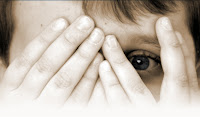ASD and Anxiety Overload

"What can I do as a parent to help my Asperger's child to be less anxious about his upcoming trip to the zoo? His 5th grade class will be going on this field trip next week, and he is very nervous about it." Autism Spectrum Disorders (ASD) and anxiety go hand-in-hand. It affects a child’s ability to communicate with others or to understand the world around him, and that’s bound to cause anxiety and panic sometimes. Anxiety becomes even worse when there is a change in the ASD child’s routine. Even positive and “fun” changes, like a school field trip or a visit to the zoo, can increase anxiety and aggressive behaviors. The renowned autism expert Tony Atwood is fond of putting it this way: “Autism is anxiety looking for a target.” For parents, the best course of action is to anticipate upcoming changes and help your child prepare for them. Many parents find it helpful to use stories and pictures to prepare children for impending disruptions. If it’s a field trip to the